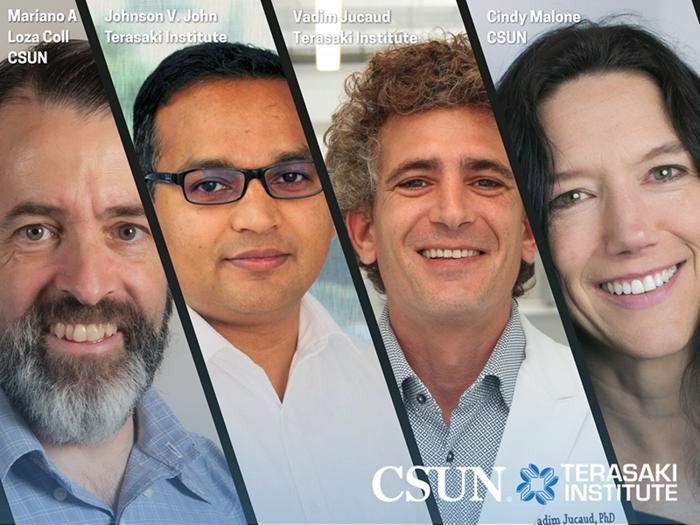Los Angeles, CA – On May 29, 2025, the Terasaki Institute for Biomedical Innovation (TIBI) and California State University, Northridge (CSUN) officially announced an expansive new collaborative initiative designed to integrate advanced hands-on laboratory experiences into the CSUN Biology graduate curriculum. This partnership represents a significant milestone in bridging academic study with frontline biomedical research, offering master’s students unique opportunities to engage directly with pioneering technologies and methodologies in biomedical science.
This collaboration is the culmination of a steadily deepening relationship between TIBI and CSUN, an alliance that originated through shared access to research resources and facilities. It evolved further with the institution of the TIBI Summer Junior Internship Program, which provided undergraduate students from CSUN exposure to cutting-edge projects. Now, the initiative broadens its scope to incorporate immersive research experiences for graduate students at the master’s level. This step signifies an evolution in educational opportunities, targeting the preparation of future scientists with practical, interdisciplinary skills.
Students participating in this program stand to work in close proximity with eminent scientists at TIBI, an environment steeped in innovation. The research projects span a suite of emerging biomedical fields including biomaterials science, the engineering of functional tissue constructs, regenerative medicine technologies, and the development of sophisticated nanomedicine platforms. Moreover, the collaboration explores novel organ-on-a-chip systems, biosensing technologies with high specificity and sensitivity, and personalized therapeutic approaches that tailor interventions based on individual patient profiles.
The scientific complexities underlying these research areas require a comprehensive understanding of multiple disciplines, including cellular biology, materials science, bioengineering, and immunology. Through direct involvement in ongoing projects, students gain invaluable exposure to multidisciplinary problem-solving and experimental design, employing techniques such as microfabrication for organ-on-chip models, nano-scale drug delivery systems engineering, and real-time biosensor data analysis. The program emphasizes hands-on skill acquisition alongside theoretical knowledge, fostering an integrative approach to biomedical innovation.
According to Dr. Mariano Loza Coll, Associate Professor of Biology at CSUN, this collaboration exemplifies the power of institutional synergy. “Our students are gaining unprecedented access to TIBI’s state-of-the-art technologies and research infrastructure, situating them at the forefront of biomedical discovery,” he asserts. This immersive experience is designed not only to enhance technical competencies but to cultivate a collaborative ethos, preparing students to succeed in scientific environments that demand teamwork and innovation.
The partnership results from the concerted efforts and visionary leadership of key faculty and researchers: Professors Cindy Malone and Mariano Loza Coll on the CSUN side, alongside Drs. Johnson V. John and Vadim Jucaud from TIBI. Together, they have painstakingly devised a curriculum roadmap that weaves academic rigor with practical research contributions, ensuring the program’s outcomes foster both intellectual growth and real-world impact.
Dr. Ali Khademhosseini, CEO of the Terasaki Institute, highlights the transformative potential of such partnerships. He emphasizes that providing emerging scientists with immersive research experiences is central to advancing biomedical science as a whole. The initiative serves as a platform for talent cultivation, accelerating the translation of fundamental discoveries into therapeutic applications, and contributing to the institute’s mission of developing innovative solutions to pressing health challenges.
One of the technical cornerstones of the collaboration lies in the development and application of organ-on-a-chip models, microengineered systems that recapitulate the physiological functions of human organs in vitro. These platforms enable high-throughput screening of drug candidates, personalized disease modeling, and mechanistic studies of tissue responses, vastly improving preclinical testing accuracy while reducing reliance on animal models. Students working on these platforms refine expertise in microfluidics, cell culture under dynamic conditions, and integrated biosensors.
Another significant focus is the synthesis and characterization of biomaterials that interact with biological tissues to promote regeneration or modulate immune responses. The program exposes students to techniques such as polymer chemistry, scaffold fabrication, and surface modification, all critical for engineering materials that support tissue repair or enable targeted drug delivery. Mastery of these skills positions learners to contribute innovatively to the rapidly expanding field of regenerative medicine.
In the realm of nanomedicine, trainees explore the design and optimization of nanoparticles capable of delivering therapeutic payloads with high precision. This involves understanding nanoparticle physicochemical properties, surface functionalization for targeted delivery, and controlled release kinetics. Such nanoscale interventions promise to revolutionize treatment paradigms by enhancing efficacy while minimizing side effects, an area where emerging scientists engage actively through the program.
Biosensing technologies, another pillar of this joint effort, leverage advancements in materials science and electronics to detect biological signals with unprecedented sensitivity. The program exposes students to sensor fabrication, signal transduction mechanisms, and data interpretation techniques essential for applications ranging from disease diagnostics to environmental monitoring. This aspect integrates engineering principles with biology, preparing researchers for interdisciplinary innovation.
Ultimately, the CSUN-TIBI collaboration embodies a commitment to equitable access in STEM education, ensuring that the next generation of biomedical innovators is equipped with both the knowledge and experiential learning opportunities necessary for impactful careers. It demonstrates how academic institutions and research organizations can synergistically foster talent, driving scientific discovery and technological innovation to address complex health challenges.
For additional information regarding this initiative or to inquire about opportunities, interested parties are encouraged to contact Dr. Johnson John at the Terasaki Institute for Biomedical Innovation via email at jjohn@terasaki.org.
Subject of Research: Biomedical innovation encompassing biomaterials, tissue engineering, regenerative medicine, nanomedicine, immunology, organ-on-a-chip technology, biosensing, and personalized therapeutics.
Article Title: Terasaki Institute and CSUN Launch Cutting-Edge Collaborative Program to Revolutionize Biomedical Graduate Education
News Publication Date: May 29, 2025
Web References: terasaki.org
Image Credits: Terasaki Institute for Biomedical Innovation
Keywords: Science education, Science faculty, Biotechnology, Engineering, Bioengineering, Scientific collaboration




